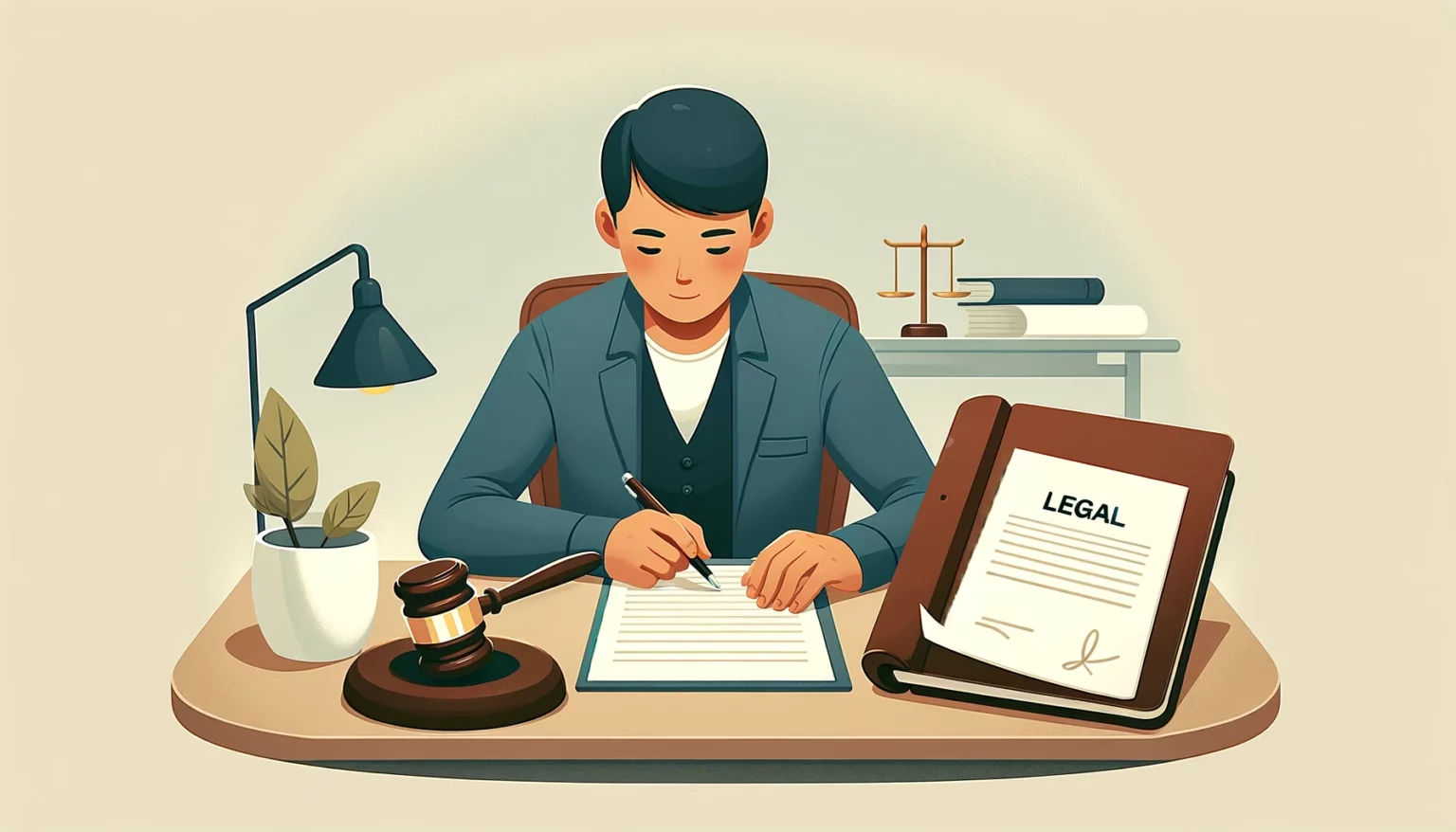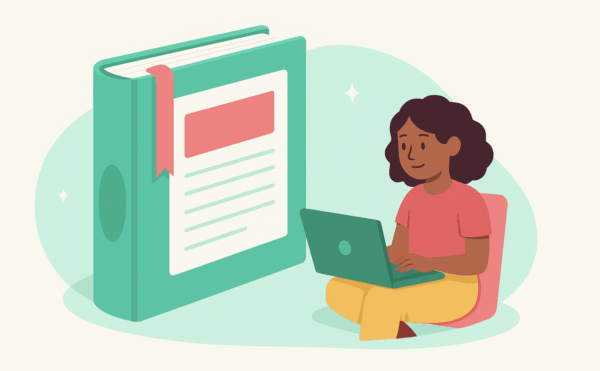A serene yet focused workspace where creativity meets legal preparedness in the realm of self-publishing.
In recent years, the publishing world has witnessed a significant transformation with the rise of self-publishing, a movement that has democratized the process of bringing literary works to the public eye. Gone are the days when the gatekeepers of traditional publishing houses solely determined what would grace the shelves of bookstores. Today, authors have the unprecedented ability to take control of their publishing journey—from the initial draft to the final product available to readers worldwide. However, with great power comes great responsibility, particularly in particularly in navigating the complex web of legal issues that accompany self-publishing. This is where professional self-publishing services can make a critical difference, offering expert guidance to help authors manage both creative and legal complexities.
Understanding self-publishing legal issues is crucial for authors who wish to protect their work, avoid potential legal disputes, and ensure their publishing endeavors are both successful and compliant with applicable laws. This involves a comprehensive understanding of copyright law, intellectual property rights, contracts, and the myriad legal considerations that can impact a self-published work. From ensuring the originality of content to navigating copyright registration, and from understanding the implications of libel laws to negotiating publishing contracts, authors must be well-versed in the legal aspects of publishing to safeguard their interests and maintain their professional reputation. Many authors choose to partner with self-publishing experts to ensure their work is polished, market-ready and protected from legal pitfalls.
This article aims to shed light on the essential legal issues every self-publisher should be aware of. By providing a thorough overview of the key legal challenges and considerations in the self-publishing process, authors can be better prepared to tackle potential legal hurdles and focus on what they do best—writing and sharing their creative works with the world. Whether you’re a seasoned indie author or considering self-publishing for the first time, a solid foundation in the legalities of publishing is indispensable for a smooth and successful publishing journey. Leveraging professional support along the way can turn a daunting process into a confident, well-executed publishing experience.
The Self-Publishing Phenomenon
Self-publishing is the act of independently publishing one’s work without the involvement of an established publishing house. This method empowers authors to take complete control over the creative and selling process of their books, from writing and editing to formatting, designing, and marketing. With the advent of digital technology and platforms like Amazon Kindle Direct Publishing, Smashwords, and Lulu, the scope of self-publishing has expanded exponentially, allowing authors to reach a global audience with minimal barriers to entry.
Contrast Between Traditional Publishing and Self-Publishing
The key distinction between traditional publishing and self-publishing lies in the control and responsibility held by the author. In traditional publishing, the publishing house takes on the tasks of editing, designing, marketing, and distributing the book, often providing an advance to the author. However, this process can be highly selective, with many authors facing rejection from multiple publishers. In contrast, self-publishing places the author at the helm of every decision, from selecting a cover design to setting the price point, but also requires them to bear the upfront costs and navigate the complexities of publishing and marketing their book.
Key Benefits and Challenges of Choosing to Self-Publish
One of the main benefits of self-publishing is the creative freedom it affords authors. They retain full rights to their work, make all editorial decisions, and publish on their own timeline. Additionally, self-published authors often enjoy higher royalty rates compared to traditionally published authors.
However, self-publishing also presents significant challenges. Authors must shoulder the responsibilities typically handled by traditional publishers, including quality editing, cover design, formatting, and effective marketing. Without the support of a publishing house, authors must also navigate the publishing process, invest their own funds, and develop a comprehensive marketing strategy to ensure their book reaches its intended audience.
Your Publishing Journey Awaits – Start NowOverview of the Self-Publishing Process from Manuscript to Published Work
The self-publishing process begins with a completed manuscript. Authors then move on to editing—often involving both self-edits and professional editing services—to refine their work. Next, the manuscript requires formatting for various platforms (e-books, print-on-demand), followed by the design of a compelling book cover, which is crucial for attracting potential readers.
Once the book is ready, authors choose a publishing platform and upload their manuscript, setting a price and distribution channels. The final, critical step is marketing the published work, which can involve social media promotion, email marketing, book reviews, and author events. Throughout this process, authors must remain vigilant about copyright registration and protecting their intellectual property to safeguard their rights and revenues.
A stack of books, a gavel, and glasses
Self-Publishing Legal Issues: Key Elements
Navigating the legal landscape is a critical aspect of self-publishing. Authors must be aware of several key legal issues to protect their work and avoid potential legal pitfalls.
Comprehensive Understanding of Copyright Law as it Pertains to Self-Publishing
Copyright law grants authors exclusive rights to their original works, including the right to reproduce, distribute, and adapt their creations. For self-publishers, understanding copyright law is essential to protect their work from unauthorized use and to manage the rights they can license to others. This knowledge also helps authors respect the copyrights of others, ensuring they do not inadvertently infringe upon someone else’s intellectual property.
Intellectual Property Rights and Protecting Your Work
Intellectual property rights are the legal protections granted to creators for their unique works, encompassing text, images, designs, and other creative elements. To safeguard these rights, self-publishers should consider measures such as copyright registration, using copyright notices, and implementing digital rights management (DRM) strategies. Additionally, understanding the scope of intellectual property rights helps authors recognize the value of their work and the importance of protecting it in the digital age.
Copyright Registration: Steps, Importance, and Implications for Copyright Infringement
Copyright registration involves officially registering your work with the appropriate governmental body, such as the Copyright Office in the United States. Though copyright protection is automatic upon the creation of a work, registration is crucial as it serves as prima facie evidence of copyright ownership and is required to file infringement lawsuits in federal court. The process typically involves completing an application, paying a fee, and submitting a copy of the work. The implications of copyright infringement can be severe, including statutory damages, legal costs, and injunctions against further infringement.
Trademark Infringement: Avoiding the Use of Protected Brand Names and Logos
Trademark law protects brand names, slogans, and logos from being used in ways that could confuse consumers. Self-publishers must be cautious not to use trademarks in their book titles, cover art, or promotional materials without permission. This includes avoiding the unauthorized use of famous characters, terms, or symbols that have been trademarked, as this could lead to legal challenges and the requirement to cease sales or pay damages.
Libel Laws, Defamation, and the Risks of Publishing False Statements About Public Figures
Libel and defamation laws protect individuals from false statements that could harm their reputation. For authors, this means being diligent in verifying the facts and avoiding making defamatory statements, particularly about public figures. The standard for proving defamation is higher for public figures, who must demonstrate that the author acted with “actual malice” or reckless disregard for the truth. Nonetheless, facing a defamation lawsuit can be costly and damaging to an author’s reputation.
Privacy Laws and the Use of Personal Life Details in Your Work
Privacy laws protect individuals’ rights to keep certain personal information private. When self-publishing, particularly in genres like memoirs or biographies, authors must be careful not to disclose private details about individuals without consent, as this could lead to invasion of privacy claims. This includes being mindful of not only what is said but also how it is portrayed, ensuring that personal information is either significantly altered, fictionalized, or used with explicit permission.
Your Publishing Journey Awaits – Start NowAn open contract with a magnifying glass, fountain pen, and seal wax stamp
Navigating Contracts and Agreements
For self-publishers, understanding and negotiating contracts and agreements is crucial to protect their interests and maximize the benefits of their publishing efforts. This involves not only dealing with contracts related to publishing platforms but also understanding the nuances of agreements that may come into play when collaborating with others or expanding the reach of their work.
Understanding Publishing Contracts and Rights Granted to Self-Publishers vs. Publishing Houses
In traditional publishing, authors often sign contracts that grant the publishing house certain rights to their work, such as the rights to print, distribute, and sell the book in various markets. These contracts can also include clauses about royalties, advances, and rights to future works. In contrast, self-publishers retain all rights to their work but must understand the terms and conditions of the platforms they use to publish and distribute their books. This includes understanding the percentage of sales they will retain, any exclusivity clauses, and the control they have over pricing and distribution.
The Role and Importance of Non-Disclosure Agreements in Protecting Your Work
Non-disclosure agreements (NDAs) are crucial when sharing unpublished work with beta readers, editors, or any other third parties involved in the publishing process. An NDA ensures that the details of your work and any proprietary information shared during the process remain confidential. This legal document helps prevent the unauthorized disclosure of your work, protecting your intellectual property and the uniqueness of your content.
Negotiating Royalty Rates and Distribution Channels
Royalty rates—how much authors earn from the sale of their books—are a critical aspect of publishing contracts. Self-publishers need to negotiate the best possible rates with platforms and distributors to ensure fair compensation for their work. This requires a clear understanding of the standard rates in the industry and the factors that influence these rates, such as the format of the book (e-book, print, audiobook) and the distribution channels used. Additionally, authors should consider the reach of different distribution channels and how they align with their target audience to maximize sales potential.
Legal Considerations in Digital Publishing, Including eBook and Audiobook Formats
Digital publishing introduces specific legal considerations, particularly regarding copyright and distribution. For eBooks and audiobooks, self-publishers must ensure their works are protected against unauthorized copying and distribution. This may involve using digital rights management (DRM) technologies or other copyright protection measures. Additionally, authors should be aware of the different royalty structures and distribution agreements specific to digital formats, as they can vary significantly from traditional print publishing.
When navigating contracts and agreements in self-publishing, it’s crucial for authors to be diligent and, if necessary, seek legal advice to understand the implications of the terms they are agreeing to. Being well-informed and cautious in contract negotiations can prevent future disputes and ensure authors are adequately compensated and retain the rights and control over their work they desire.
An artist’s desk with creative tools and legal references
The Legalities of Content and Creative Choices
The realm of self-publishing is not just about the logistics of putting a book into the world; it’s also about making informed content and creative choices. These decisions can have significant legal implications, especially concerning copyright laws and the protection of intellectual property.
Your Publishing Journey Awaits – Start NowThe Thin Line Between Inspiration and Infringement: Using Someone Else’s Copyrighted Material
Inspiration is the lifeblood of creativity, but there’s a fine line between being inspired by someone’s work and infringing upon their copyright. Copyright infringement occurs when copyrighted material is used without permission in a way that violates one or more of the copyright holder’s exclusive rights. Authors must ensure that any use of another’s work falls within legal boundaries, such as obtaining explicit permission or licensing, to avoid legal repercussions and respect the original creator’s rights.
Fair Use Doctrine and Its Application in Self-Publishing
The fair use doctrine is a critical aspect of copyright law that allows limited use of copyrighted material without requiring permission from the rights holders under specific conditions. These conditions include purposes such as criticism, comment, news reporting, teaching, scholarship, or research. In self-publishing, fair use might apply to quoting other works for purposes of review or critique. However, the boundaries of fair use are nuanced and can vary by jurisdiction, making it essential for authors to understand its limitations and seek legal counsel when in doubt to avoid unintentional infringement.
Public Domain Materials and Their Safe Use in Your Work
Materials in the public domain are not protected by copyright and can be freely used by anyone. Works typically enter the public domain after copyright expires or if they were never eligible for copyright protection. Authors can incorporate public domain content into their works without restrictions. However, it’s crucial to verify that the material is indeed in the public domain in the relevant jurisdiction and to be mindful of any trademarks or other rights that might still apply to aspects of the work, such as characters or settings.
Legal Challenges with Pen Names, Ghostwriters, and Collaborations
Using a pen name, hiring a ghostwriter, or collaborating with other authors can introduce complex legal considerations. When using a pen name, authors must ensure they are not infringing on trademarks or misleading consumers. Contracts with ghostwriters should clearly outline rights, responsibilities, and compensation, including who will be credited as the author and who owns the copyright to the work. Collaborations require clear agreements on copyright ownership, division of royalties, and how decisions will be made, ideally formalized in a written contract to prevent disputes.
Navigating the legalities of content and creative choices requires a careful balance between protecting one’s own rights and respecting those of others. Authors must tread thoughtfully in areas of copyright, fair use, public domain, and collaborative work to ensure their creative endeavors are both legally sound and respectful of the broader artistic community. Being informed and cautious in these areas can prevent legal challenges and foster a healthy, respectful creative environment.
A negotiation table setup
Preventing and Resolving Legal Disputes
In the world of self-publishing, where authors wear multiple hats, it’s crucial to approach the legal aspects of publishing proactively to prevent disputes and to know how to resolve them should they arise. This foresight not only protects the author’s work but also maintains the integrity and reputation of their publishing venture.
Steps to Take Before Publishing to Avoid Legal Troubles
- Seeking Legal Advice: Before publishing, it’s wise to consult with a legal professional who specializes in copyright law and the publishing industry. This step can provide clarity on the legal implications of your publishing decisions and help you navigate copyright, contracts, and intellectual property rights.
- Copyright Lawyer Consultation: A copyright lawyer can offer specific advice tailored to your work, particularly if it involves complex issues like using copyrighted material, incorporating real-life events, or co-authoring content. They can guide you through copyright registration, fair use considerations, and drafting contracts for collaborations or ghostwriting arrangements.
Handling Copyright Infringement Claims and Statutory Damages
- Proactive Measures: Ensure your work does not infringe on others’ copyrights by conducting thorough research and obtaining necessary permissions. Use copyright notices and consider registering your copyright to deter infringement and strengthen your legal position.
- Responding to Claims: If faced with a copyright infringement claim, consult a copyright lawyer immediately to understand your position and options. If the claim is valid, you may need to cease the infringing activity, negotiate a settlement, or face statutory damages. If the claim is unfounded, your lawyer can help you defend your rights.
Dealing with Legal Disputes Over Intellectual Property and Exclusive Rights
- Clear Agreements: Clearly defined agreements are vital when collaborating with others or licensing your work. These agreements should specify the rights and obligations of each party to prevent misunderstandings.
- Resolution Strategies: If a dispute arises, consider alternative dispute resolution methods such as mediation or arbitration before resorting to litigation. These methods can be less adversarial and more cost-effective, helping preserve professional relationships.
Importance of Maintaining a Professional Reputation and Ethical Publishing Practices
- Ethical Standards: Adhere to high ethical standards in your publishing practices. This includes respecting copyright laws, accurately representing your work, and dealing transparently with collaborators, contractors, and the public.
- Reputation Management: Your professional reputation is invaluable. Ethical missteps or legal disputes can tarnish your image and affect your future publishing endeavors. Proactively managing legal risks and resolving disputes amicably can help maintain a positive reputation in the publishing community.
Preventing and resolving legal disputes in self-publishing involves a combination of legal foresight, ethical practices, and effective communication. By taking proactive steps to understand and adhere to legal requirements, seeking expert advice, and dealing with issues constructively, self-publishers can navigate the complexities of the publishing world more smoothly and sustainably.
The juxtaposition between the personal, creative side of writing and the broader, formal aspects of self-publishing’s potential success
Special Considerations in Self-Publishing
Self-publishing presents unique opportunities and challenges that require careful consideration, especially when it comes to legal and professional aspects that extend beyond the act of publishing a book. Understanding these special considerations can help authors navigate potential pitfalls and leverage their work effectively.
Impact of Self-Publishing on Copyright Holder Relationships and Traditional Publishing Contracts
Self-publishing can significantly affect the dynamics between authors and traditional publishers. Authors who successfully self-publish may find themselves in a stronger negotiating position with traditional publishers due to an established reader base and proven sales records. However, they should be aware that traditional publishing contracts might demand exclusive rights, potentially limiting the author’s control over their work. It’s essential for self-published authors to thoroughly understand and negotiate the terms of any contract with a traditional publisher, particularly regarding rights reversion, to ensure they do not inadvertently relinquish too much control over their work.
Legal Implications of Adapting Published Work into Other Media (Movie Rights, Merchandise)
When a self-published book gains popularity, there may be opportunities to adapt the work into other media, such as films, TV shows, or merchandise. These opportunities introduce a new set of legal considerations, primarily around copyright and licensing agreements. Authors must negotiate the terms of these agreements carefully to protect their interests and ensure they receive fair compensation. Understanding the scope of the rights being licensed, the duration of the license, and any royalty arrangements is crucial. Authors might also consider retaining certain rights to maintain control over how their work is used.
The Role of Beta Readers and Copyright Permissions in the Final Draft Process
Beta readers play a valuable role in the self-publishing process by providing feedback on early drafts. However, sharing unpublished work with others can pose a risk if proper precautions are not taken. Authors should consider using non-disclosure agreements (NDAs) with beta readers to protect the confidentiality of their manuscripts. Additionally, if beta readers contribute significant ideas or content, authors should clarify the ownership of these contributions to avoid copyright disputes.
Addressing Embarrassing Facts or Potentially Defamatory Material in Creative Works
Self-publishers writing non-fiction or incorporating real-life experiences into their fiction must be cautious about including embarrassing facts or potentially defamatory material about real people. Even if the information is true, its publication could lead to legal challenges such as defamation, invasion of privacy, or the public disclosure of private facts. Authors should consider the legal and ethical implications of their content, potentially seeking permission from the individuals involved or altering details to anonymize subjects. In some cases, it may be advisable to consult a legal professional to assess the risks associated with publishing sensitive content.
Navigating the special considerations in self-publishing requires a balance between seizing opportunities and mitigating risks. By being informed about the implications of their decisions and seeking appropriate legal and professional advice, self-publishers can make strategic choices that enhance the success and impact of their work while safeguarding their rights and reputation.
Your Publishing Journey Awaits – Start NowThe Final Verdict: Legal Wisdom for Self-Publishers
In conclusion, self-publishing offers a world of opportunities for authors to bring their creative visions to life and reach audiences on their own terms. However, the journey is fraught with legal complexities that can be as challenging as they are critical to navigate. From understanding copyright law and protecting intellectual property to negotiating contracts and handling legal disputes, authors must arm themselves with knowledge and exercise due diligence at every step of the publishing process.
Special considerations, such as adapting works into other media, working with beta readers, and addressing sensitive content, further underscore the need for a careful, informed approach to self-publishing. The legal landscape can be daunting, but it is navigable with the right preparation and professional guidance.
Ultimately, the goal of self-publishing is not just to publish a book but to do so in a way that respects legal boundaries, protects the author’s rights, and upholds the integrity of the publishing process. By being proactive about legal issues, seeking expert advice when needed, and adhering to ethical publishing practices, self-publishers can mitigate risks, avoid disputes, and focus on what they love most—writing and sharing their stories with the world.
As the self-publishing landscape continues to evolve, staying informed about legal issues and best practices will remain paramount for authors seeking to make their mark in the publishing world. With the right approach, self-publishing can be a rewarding and successful endeavor, free from the constraints of traditional publishing and open to the vast possibilities of the digital age.







